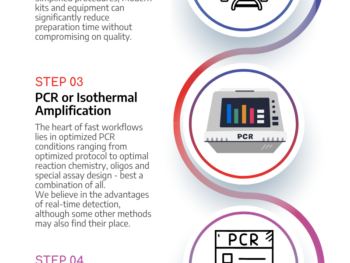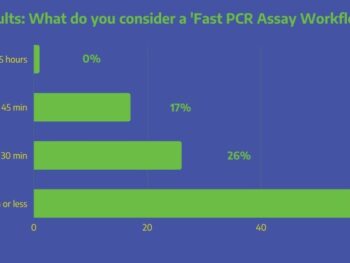Fast PCR Assays: The Need for Speed and the Reality of the Game
At Ambiatec Biosolutions, we're always keen to understand the evolving needs of our community. Last week, we posed a simple yet crucial question to our audience: "What do you consider a 'fast' PCR Assay Workflow?" The results were both enlightening and somewhat expected.
A whopping 57% of respondents believe that a PCR assay should be completed in 20 minutes or less to be considered 'fast'. Another 26% felt that 30 minutes was the upper limit. Combined, this means that a staggering 83% of our audience expects a fast PCR assay to be completed in 30 minutes or less, with a strong preference for it to be under 20 minutes.
But let's juxtapose this with the reality of the situation. A few years back, we invested in a PCR instrument that boasted a rapid ramp rate of 9°C/sec. However, in practice, this peak rate was maintained only momentarily before slowing down to avoid temperature overshoots. The average ramp rate hovered around 2.3°C/sec for heating, and the cooling rate was even less impressive.
This brings us to an essential point: while the demand for speed is evident, the current technology might not always deliver as promised. It's not just about the hardware; the magic often lies in the right assay design and the optimal reaction chemistry. New concepts and innovations are needed to push existing hardware to its limits and ensure that PCR amplification is as fast as the technology allows.
At Ambiatec Biosolutions, we're committed to bridging this gap. Your insights and feedback drive us to challenge the status quo and innovate. While we might not achieve the 20-minute mark with every piece of hardware, we promise to push each one to its maximum potential.
We'd like to extend our heartfelt gratitude to everyone who participated in our poll. Your insights are invaluable, and they play a pivotal role in shaping the future of fast PCR diagnostics. We're in this journey together, and with your continued support, the future looks promising.
In any case, we have accepted the challenge to speed up molecular testing workflows.




